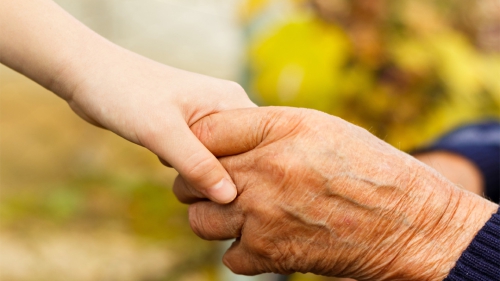America's First Muslim College Opens This Fall

A new college started classes this summer in Berkeley, California.
Zaytuna College's motto is, "Where Islam meets America." It's the first Muslim college in the United States.
College campus
A visit to the campus reveals a pretty standard California college scene.
Students walk across a sunny courtyard into classrooms, pick seats next to friends. But on this campus, the women sit on opposite sides of the auditorium from the men, who are mostly heavily bearded, heads covered in skull caps. Only one woman's hair is visible. The rest wear modest Islamic scarves.
The language in this classroom is Arabic. Zaytuna College is offering summer language classes in preparation for its official fall opening. The college emphasizes a rigorous general education in American history, anthropology, philosophy, literature, political science, but a major portion of its required curriculum is devoted to the study of Islam and the Koran.
"We want to manifest Islam in a way that's compatible with America," says Imam Zaid Shakir, who founded Zaytuna and is also a professor.
Homegrown Muslim scholars
He says that most teachers of Islam in America come from other countries - like Pakistan, Yemen, Egypt. So, even though there are millions of American Muslims, the religion can seem foreign here. But teachers at Zaytuna, says the imam, will be like him.
"People who are trained and educated right here, who understand the nuances and complexities of our society. And who also are comfortable with their Americanness on the one hand and comfortable with Islam on the other hand."
Zaytuna follows a historic tradition of religion-based American colleges.
"Harvard and Princeton and Yale. The universities founded here have been founded by religious denominations," says Dr. Michael Higgins, who studies the relationship between religion and higher education.
Bracing for opposition
Although religion-based colleges are common in the U.S., Higgins fears potential protests against an Islamic college in the post-911 era, where there is growing public perception that Islam is a religion that condones, and teaches, violence and intolerance.
"I think there will be a lot of fear or apprehension around the establishment of a college that adheres to Islam. If it becomes a madrasa or a college of inculcation only, that could be hugely problematic."
But Shakir says voices of opposition to the college reflect a minority opinion in the United States and are a response to a highly visible, but very small, fringe group within the Islamic community.
"Because you see these foiled bomb plots, a lunatic fringe," says Shakir. "And I think this is why Zaytuna College is so important. If we prove ourselves, even those more vocal critics will be silenced. It's up to us. The ball is in our court."
Proving themselves
Holding that ball right now are Zaytuna's incoming students, who find themselves not only studying at Zaytuna, but also defending it.
"Islamaphobia's so entrenched at this point in this country, that for Muslims to do anything at this point there's some level of defense that has to take place. That's not to say that we should have to defend ourselves," says Dustin Craun, 30, a convert to Islam. He's already earned a bachelor's degree but feels his traditional college education missed something fundamental.
"The beauty of Islamic knowledge is that it balances between the mind and the heart and the soul," he says.
At the end of the day's classes, Shakir prays for the success of the students who will be the first graduates from the first American Islamic college.
He says Islam has never become rooted in any land until that land had its own Islamic scholars. And that, he says, is precisely the goal of Zaytuna College.
*****
Source: VOA News

















